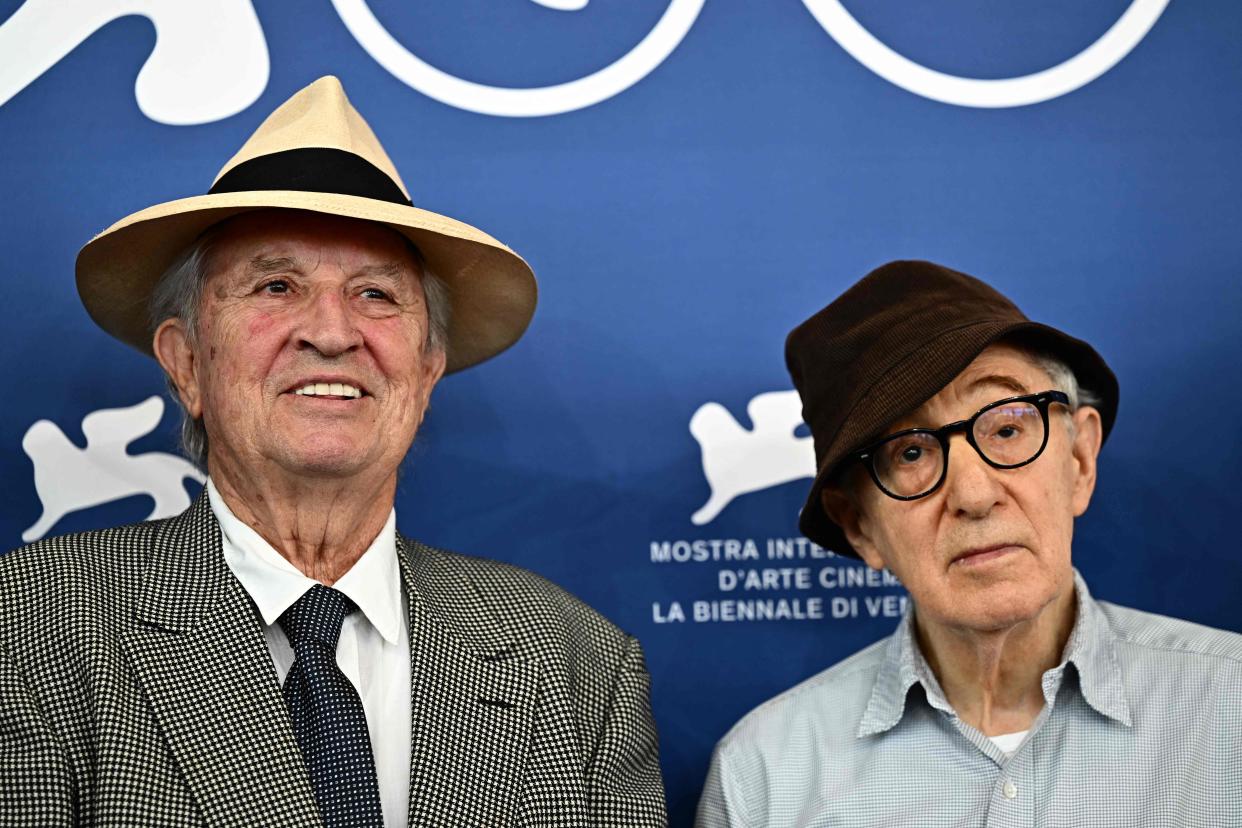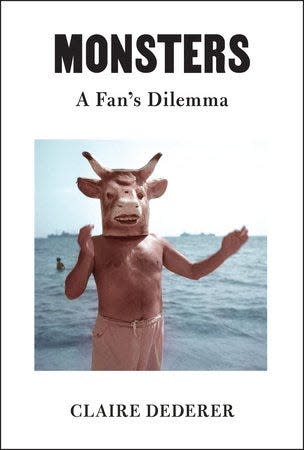How Woody Allen's little-seen 50th film shines a light back on the director

- Oops!Something went wrong.Please try again later.
- Oops!Something went wrong.Please try again later.
Once a big event for cinephiles and the arthouse crowd, the release of a new Woody Allen film came and went recently with barely a peep.
"Coup de Chance," in fact, was released only in a handful theaters in the states; produced by a French studio, it lies in the bog of streaming, barely discoverable. Once working with a who’s who of Hollywood, Allen’s 50th film as a director (!) features no one you know.
We know why. Allen is controversial — cancelled, as they say. No American production house will fund his work. He stands accused of horrible crimes. Even though the public record shows two contemporaneous investigations cleared him of any wrongdoing.
Yet his personal life and artistic endeavors paint the picture of someone who struggles with accepted standards of right and wrong. For someone to marry the college-aged daughter of their former girlfriend is, well, creepy. To cast Mariel Hemingway as the love interest in “Manhattan” tests the bounds of taste, even if the film remains a classic through many eyes.
Yet Allen’s troubled persona is what colors “Coup de Chance” and helps make the film interesting on top of being brisk and dark. It is one of the filmmaker’s examinations of how the rich and powerful manipulate the world around them — which is often Allen’s best work. See “Crimes and Misdemeanors,” “Match Point,” or the under-heralded “Cassandra’s Dream,” for other examples.
Allen may be a terrible person — there are a lot of people in show business who are, but just haven’t been caught — but that influences his art and layers the film to create a true experience.
The plot is hard to discuss without spoiling things, so I will try and be careful. Fanny (Lou de Laage) is a young woman with some success in her own right, but who also is married to the fabulously wealthy and doting Jean (Melvil Poupaud). Although no one knows how he made his money, many assume Jean is dangerously shady. Rest assured, he’s very shady and quite dangerous.
One day, Fanny bumps into Alain (Niels Schneider), a childhood friend. He’s in Paris working on a book about the irony of luck. More on that in a bit. Almost immediately, Alain confesses a lifetime attraction to his friend. Instead of exercising caution, Fanny sees this as fortuitous.
They sneak away to see each other over lunch. Over an extended period of the film, passion blooms. Alain himself remarks how lucky it is that they met on the street that day.
As an aside, a culture critic I follow on Twitter/X suggested 95% of Allen’s films begin with a chance encounter like that. Perhaps too low a percentage from what I’ve seen.
Anyway, remember how I said Alain was writing a book about the irony of luck? Jean begins to get suspicious of his wife’s behaviors and has her followed. What comes forth in the plot is a clear indication that, at least for Alain, luck and fate are often initially mistaken for the same thing.
Of course, once Jean acts out of jealousy and rage, more dominos fall. Alain takes his time — even though the film runs at an efficient hour and 36 minutes — springing his trap for a man who thinks fortune and its comforts are enough to let him skate through life. Chance or luck or wits run out eventually and we have to face the consequences of our actions.
By no means a unique observation, “Coup de Chance” makes its telling unique because of Allen’s personality and background. Whether the filmmaker admits guilt or fault (and he doesn’t), we can watch stories like this unspool and get his sense of human nature and of circumstance. Things that seem good at first become our undoing. Our stature in society can only protect us so long. That’s what we learn from the film, but that's also an insight into the person making the film.
I read a book earlier in the year, Claire Dederer’s “Monsters,” which is a memoir about a critic struggling with artists who proved themselves to be … monsters. Her theory is that our feelings about art can be separated by what we know about its creators. Perhaps the monster is the audience themselves, she suggests.

Dederer might be right about the audience, but I subscribe to the theory that a film or a piece of art can be illuminated by the terribleness of the forces behind it. While she argues a separation can occur, I believe we can learn a lot from the (im)moral composition of a filmmaker.
This book came to mind as I was watching “Coup de Chance.” Even if it's in French, it is vintage Woody Allen. His characters are privileged, but not sheltered from a world that demands judgment. We all have it coming, Allen argues, and I believe you can take comfort in that outcome no matter where you land on his personal failings.
You can rent the film on pretty much every streaming platform for $6. A steal given what you can learn from watching it.
James Owen is the Tribune’s film columnist. In real life, he is a lawyer and executive director of energy policy group Renew Missouri. A graduate of Drury University and the University of Kansas, he created Filmsnobs.com, where he co-hosts a podcast. He enjoyed an extended stint as an on-air film critic for KY3, the NBC affiliate in Springfield, and now regularly guests on Columbia radio station KFRU.
This article originally appeared on Columbia Daily Tribune: How Woody Allen's little-seen 50th film shines a light back on the director

